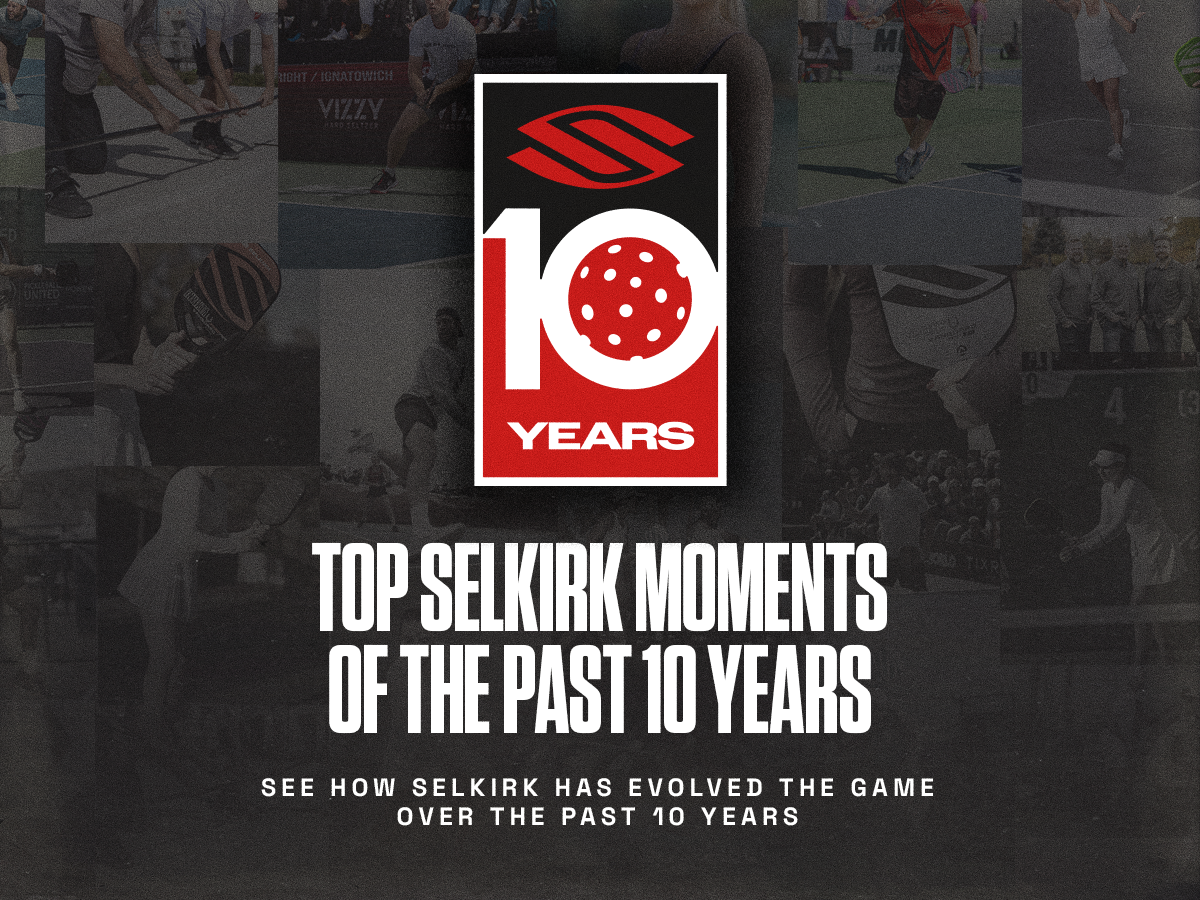In the newest episode of “10 Pickleball Rules for Beginners,” professional pickleball official Maddie Toren explains the rules to remember while at the non-volley zone, or kitchen.
All volleys, or contact with the ball made before it bounces, must be initiated outside the non-volley zone. If contact is made inside the non-volley zone before the ball bounces, it is considered a fault and a point is awarded to your opponent.
Here are a few things to consider when determining whether your volley is legal:
- Both feet must be outside of the volley zone — including the lines — while volleying.
- The act of volleying includes the swing, the follow-through, and the momentum of the action. So, you cannot enter the non-volley zone even after the ball has been returned to the other side of the net or becomes dead.
- It is considered a fault if the volleying player, or anything that has contact with the volleying player — such as a paddle, hat, eyewear, hair tie, etc. — while in the act of volleying, touches the non-volley zone.
- If a paddle touches the non-volley zone during the volley motion, before or after contacting the ball, it is a fault.
- There is no violation if a player volleys a ball while their partner stands in the non-volley zone. However, it is a fault if the volleying player’s momentum causes the player to contact anything that is touching the non-volley zone, including the volleying player’s partner.
You may enter the non-volley zone at any time, including before and after returning any ball that bounces. A player may stay inside the non-volley zone to return a ball that has bounced. There is no violation if a player does not exit the non-volley zone after hitting a ball that bounces.
However, to begin volleying the ball again, you must ensure that both feet have made contact with the playing surface completely outside the non-volley zone and its lines. Once both feet have been reestablished outside the non-volley zone, you are free to begin volleying.
For players using wheelchairs
For players using wheelchairs, similar non-volley rules apply. However, the front smaller wheels of the chair may touch the non-volley zone during a volley.
If the rear wheels of a wheelchair have touched the non-volley zone for any reason, the player using the wheelchair can not volley a return until both rear wheels have made contact with the playing surfaces outside of the non-volley zone.
Keep up with other videos
Follow the 10-video installment to learn all the rules and regulations every beginner must know before stepping onto the court. Check out the previous episodes below:
- Episode 1: The two types of legal pickleball serves
- Episode 2: Where to stand as the server and other service rules
- Episode 3: How to keep score in pickleball
- Episode 4: Understanding the two-bounce rule
Be sure to follow along for each new installment of the series. Download the Selkirk TV app HERE to watch other SelkirkTV original shows, podcasts, lesson series from the pros, and much more.























































